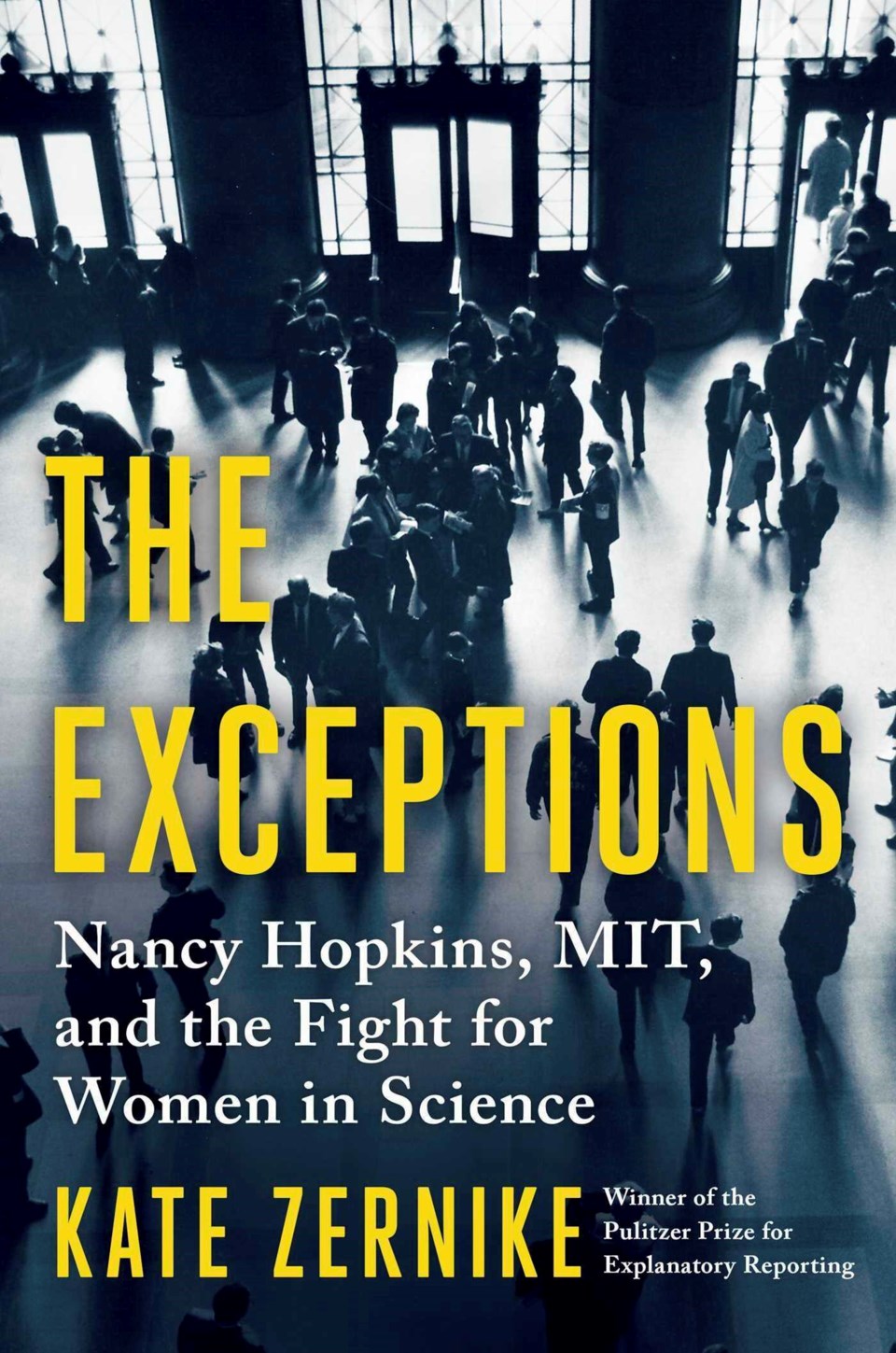"The Exceptions: Nancy Hopkins, MIT, and the Fight for Women in Science," by Kate Zernike (Scribner)
Kate Zernike had been covering higher education at The Boston Globe for about six months when she was tipped off to a major story: the Massachusetts Institute of Technology was about to admit to years of gender discrimination against female faculty members.
The school's admission and the report detailing its pattern of discriminatory practices sent shockwaves through higher education. Zernike — now a Pulitzer Prize-winning reporter at The New York Times — goes deeper into the story more than two decades later with her new book “The Exceptions."
Zernike's book is a inspiring but often infuriating account of the ways that MIT had discriminated against some of the brightest scientists in their fields. It's also a cautionary tale of how easily workplace discrimination can take root, even among academics who consider themselves well-intentioned.
The book is centered around Nancy Hopkins, a molecular biologist who spearheaded the effort to force MIT to admit to its practices after experiencing years of discrimination herself.
Zernike's book deftly describes the way women in science had been marginalized and discriminated against over the years. Zernike makes Hopkins' work and accomplishments clearly accessible to most readers, which helps underscore the impact of the discrimination against such a skilled scientist.
Some of the most inspiring sections of the book are when Hopkins and other women faculty begin meeting and sharing their stories, which eventually leads to the study on the school's discrimination patterns.
The book is an important read for anyone who wants to better understand the dynamics of discrimination in any workplace. It also helps underscore the importance of efforts to encourage more women in STEM fields after years of unfair treatment by some of the country's most respected institutions.
Andrew Demillo, The Associated Press




